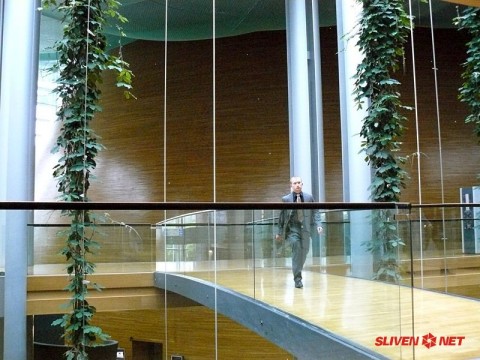
A total of 1 217 petitions received by Parliament
Top themes included the environment, fundamental rights including minority rights, and external relations
MEPs ask for improved institutional cooperation, more transparency in the petitions process
Environment was the most common theme of petitions in 2022, followed by fundamental rights and justice, and external relations.
The Petitions Committee has on Tuesday adopted its annual report on the previous year’s committee activity with 16 votes in favour, 0 against, and 3 abstaining. In 2022, the most common themes of petitions were the environment (21,2 % of all received petitions), fundamental rights (17,4 %), justice (15,6 %) and external relations (10,4 %).
Environmental and foreign affairs
In 2022, external relations saw the biggest increase in the number of received petitions compared to the previous year, which may be explained by Russian aggression against Ukraine and the geopolitical context more generally, say MEPs in the report. Environmental issues were again the most popular overall theme among petitions.
To further discuss investigate environmental concerns, the Petitions Committee organised a hearing on proposals for an EU Green Prosecutor in March. Also, several of the committee’s fact-finding visits related to environmental concerns: MEPs investigated the deterioration of the Mar Menor nature reserve in Spain in February, and in September, travelled to Poland to assess alleged breaches of EU environmental law in the primeval forest in Bialowieża, as well as access to education for pupils with disabilities. The Petitions Committee also tabled motions for resolutions on nutrient pollution and illegal logging, which were adopted by the Parliament plenary in April and June, respectively.
Fundamental rights, including rights of minorities and persons with disabilities
Another major theme for the committee in 2022 was fundamental rights, including the rights of national and language minorities, and the rights of LGBTQ citizens and families. In December, MEPs organised a hearing on discrimination on the grounds of sexual orientation. Fundamental rights were also discussed in the Committee’s resolution on empowering citizens and protecting their rights, which was adopted by the European Parliament plenary in March, and in a hearing on the EU’s cultural and linguistic variety in April.
The Committee also continues its work on the rights of persons with disabilities, in line with its special protection role overseeing the EU implementation of the UN Convention on the Rights of Persons with Disabilities. In June, Petitions Committee MEPs participated in a joint mission to the 15th session of the Conference of States Parties to the Convention on the Rights of Persons with Disabilities (the CRPD COSP) in New York City. In November, the Committee organised its annual workshop on the Rights of Persons with Disabilities, where participants discussed mutual recognition, the EU Disability Card proposals and issues faced by citizens.
To investigate topics raised in petitions, the Committee organised seven fact-finding visits altogether in 2022, some postponed from the previous year due to travel restrictions. In addition to the visits mentioned above, MEPs investigated the alleged mistreatment of minors under foster care in Palma de Mallorca, Spain, in April; examined the safety and security of truck parking areas in the Hauts-de-France region in May; and learned about Youth Welfare Offices and cross-border cases in Germany in November.
Relations with other institutions
The Committee maintains a good working relationship with the European Ombudsman, who presented her annual report to the Committee in September. The Ombudsman’s role was also discussed in the resolution on EU participatory democracy tools (the right to petition, the right to refer to the European Ombudsman and the European Citizens’ Initiative), prepared by the Petitions Committee and adopted by the Parliament plenary in March.
Going forward, the MEPs propose certain improvements to the process of handling petitions. They urge European Commission officials, who come to its meetings to respond to the citizens’ concerns, to use plain, simple and empathetic language, so that their responses to the petitioners can be clearly understandable. MEPs also wish to see higher-ranking officials of the Commission participate in its meetings, and for the Commission to clarify certain concepts that are key to its follow-up action on petitions, for example “issue of wider principle” and “systemic failure to enforce EU law”.
MEPs also highlight the need for better follow-up and information-sharing on infringement procedures from the Commission. They urge the Commission to systematically and regularly update the Committee on new developments in infringement procedures, and provide it with relevant documents. MEPs welcome the Commission’s proposal to create an interinstitutional digital platform to increase the transparency of the petitions process.
Background
The right to petition the European Parliament is a fundamental right of every EU citizens, enshrined in the EU Treaties. In 2022, Parliament received a total of 1 217 petitions. Of these, 79 % were submitted through the Parliament’s Petitions Web Portal. In 2022, the Petitions Web Portal was updated to make it more user-friendly, more secure and more accessible to petitioners.
